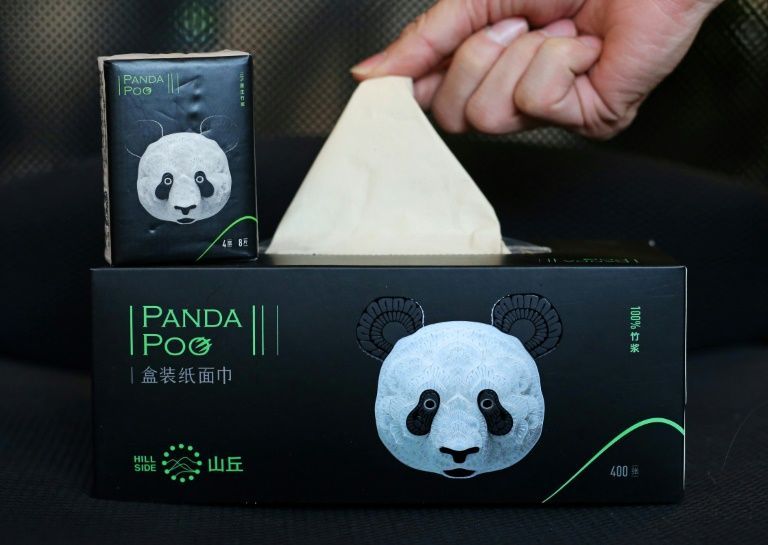Designed to fit in existing aircraft interiors, the Air Lair allows for climate control, privacy and heightened sanitation for each passenger.



The president and CEO of the Canadian Federation of Independent Business (CFIB) blasted new lockdown measures ordered by Ontario in Toronto and Peel Region, saying it’s unfair that smaller businesses must limit sales to delivery and curbside pickup while big box retailers remain open to the public.
“I’m absolutely shocked that the Ford government would go down this road,” Dan Kelly said in an interview on Friday. “To allow big box stores and even department stores like The Bay to remain open while shutting down every single little independent retailer in Toronto and Peel – I can’t imagine on what planet that’s fair.”
Ontario Premier Doug Ford announced on Friday that the two hot spots will be entering lockdown, effective Monday.

As we build the gateway in and out of Africa, preparing people for the future, application and ethical usage of science and technology in the age of exponential growth is a major concern for us.
We help institutions, organizations, and corporates to train, instruct, and design future based courses and programs for the future as it exponentially becoming faster than we think.
Our book was developed for a course on “Exponential Technologies and Business Opportunities in the Age of Singularities” for the Tekedia Institute USA with an extension in Africa as part of a Mini Masters of Business Administration program (mini MBA).
This volume is a contribution from Edward Hudgins, Ph.D., Brent Ellman, Chogwu Abdul, and Gennady Stolyarov II (edited by Edward Hudgins) which offer insights that will benefit any individual who comes about their lives and the future of their families, friends, neighbours, and countries.

Does the real future of Space exploration lie with enlightened private entrepreneurs such as Bezos & Musk or do national agencies still have a part to play? https://www.nytimes.com/2020/10/13/science/
Blue Origin’s New Shepard rocket hasn’t flown space tourists yet, but it has found a business niche with NASA and private science experiments.

Download the Brief The Issue China’s economy appears to have sprung back to normal. While the overall growth numbers have recovered and China has put forth an ambitious economic agenda for the next five years, optimism has also returned to the new-energy vehicles (NEV) sector, a good metric for the new economy. At the Beijing Auto Show, held in late September, automakers unveiled a dizzying 785 new models, 160 of which were electrified. There is growing speculation that China’s NEV sector is ready to burst onto the global stage and become an export powerhouse. But despite the glitzy new models, incremental progress on several fronts, and initial signs of expanding business abroad, China’s NEV sector still faces substantial roadblocks. Some are the result of continuing economic troubles, while others paradoxically are a result of gradual success. Consequently, the new wave of enthusiasm is a bit premature. The Shiny Exterior China has staked much of its transportation future on the new-energy vehicle sector. Massive state support is meant to drive this industry forward and help the country address three problems: reliance on the West for technology, dependence on oil imports, and air pollution. Yet progress in achieving these goals has been halting, slowed by technical challenges, investment by too many players, and insufficient consumer enthusiasm. This update of CSIS’s work from 2018 and 2019 focuses on the first challenge, industrial competitiveness. The NEV sector has grown rapidly, but it has struggled to maintain forward momentum as a result of uneven technological progress, growing pains within some individual companies, and volatile consumer demand. These issues intensified amid the pandemic, but prospects have brightened since. Sales lagged in 2019 and tanked in the first quarter of 2020, but they started recovering this summer. In July, 2020 sales figures surpassed their 2019 levels for the first time (see Figure 1). NEV sales reached 138,000 in September, and if historic patterns hold, with a big jump in year-end sales, it is entirely feasible that China will break its December 2018 record of 225,000 sales of NEVs. Even as overall auto sales have improved from the anemic levels of the first part of 2020, NEV sales are growing faster, and as a result, their share of the total is steadily rising, up from 2.3 percent in January to 5.4 percent in September (see Figure 2). As in the past, the NEV share should continue to climb toward the end of the year. There also has been a recent spate of positive news about individual domestic producers, many of whom have been struggling. Although American producer Tesla has received the most attention lately, Chinese brands are drawing positive attention. The Wuling Mini EV, a new model produced by a joint venture with General Motors, sold over 20,000 units in September, ahead of the second-place Tesla Model 3 (11,300) and BYD’s Qin EV (8,100). NIO, the flashy upstart listed on the NYSE, delivered 4,700 vehicles in September, a big jump from a year earlier. Another well-known start-up, XPeng, recently produced its 10,000th vehicle. And more traditional producers, such as SAIC Motors, have poured more resources into NEVs and have announced plans for high-end models. Equally important, foreign automakers, who have been hesitant to ramp up production because of fears about market saturation, have started to roll out NEV models. In 2017, China announced the initiation of a “dual-credit” policy that incentivizes car companies producing in China to have a minimum percentage of their fleets be NEVs and to raise vehicle fuel efficiency. Modeled on California’s Zero-Emission Vehicle Program, automakers that do not produce enough NEVs and do not sufficiently raise their average fuel economy levels must buy credits from those with a surplus. China set low voluntary targets in 2018, announced that it would steadily raise the minimum threshold annually, and in 2019 made the system mandatory for all but the smallest producers (those with total production under 30,000 vehicles). The Chinese government has started issuing data on automakers’ performance record with the dual-credit system. Interpreting the data requires caution because the system’s rules are complex, and it is unclear if officials and firms are following the written procedures. Accepting that proviso, the data on production shows a huge difference between local- and foreign-invested automakers (see Figure 3). The former (represented by green dots), perhaps viewing the dual-credit system as a mandate, immediately started expanding NEV capacity, with some going far beyond the minimum threshold. By contrast, global players (the blue dots) initially held back, and almost none of them reached the 2018 baseline. But in 2019, several of the foreign-invested producers, such as GM-SAIC-Wuling and BMW Brilliance, met the minimum production target even as it was raised from the prior year. Anecdotal evidence suggests that the data for 2020 will likely show even more widespread compliance for both domestic and global players. Just as important, the growing ability of more carmakers to meet or exceed the dual-credit system’s production target has not yet resulted in massive overcapacity generally. Although the situation may be more problematic in certain market segments, there usually has not been a huge gap between supply and demand (see Figure 4). Periods of overall surpluses and shortages appear to have been relatively brief. Progress among automakers and the industry more broadly has been built on and reinforced advances among parts makers, battery producers, and in charging infrastructure. China’s auto battery industry is doing even better than the carmakers. As of August 2020, Fujian-based CATL ranks second in production to LG Chem and is poised to take the top spot by the end of the year (see Figure 5). Three Chinese manufacturers made it into the top 10. CATL has become a major supplier to Tesla and has also inked deals to supply batteries to European automakers. China is already a major parts supplier for traditional automakers, and there is talk that Tesla may start sourcing its motors from a Chinese producer. And as of June 2020, China’s charging infrastructure had expanded significantly, with 764,000 charging poles for private residences and 558,000 public charging stations. By contrast, the United States has only has 101,000 charging outlets. Finally, China is making gradual progress in parallel sectors. It is starting to place more attention on hydrogen fuel cells, with various initiatives in basic research and applications for larger vehicles, the current best use case for hydrogen. Toyota, a global leader in hydrogen, recently announced a joint venture deal with five Chinese partners to develop fuel cell technology. Simultaneously, China is making incremental progress with autonomous vehicles. The Baidu-led Apollo project, Pony.ai, and the trucking company TuSimple have all expanded their testing in China and the United States for Level-3 autonomy and rolled out related pilots. Dependence on Subsidies Despite the genuine progress, it is far too early to declare China’s leap into NEVs an unequivocal success. There are still a variety of problems and challenges to overcome. First, the creation and growth of the NEV sector—to this day—has been heavily dependent on Chinese government subsidies. By our calculations, through the end of 2017 central and local authorities had already poured over RMB 393 billion ($58.7 billion) into the sector (see Figure 6). Most support went to reduce the burden of buyers through subsidies and rebates and an exemption from sales taxes, but significant state support also went to R&D, charging infrastructure, and government procurement. Recently, Beijing has lowered outright support for buyers per vehicle (reducing the subsidy and tax rebate rates), but outlays for R&D and government procurement have risen. By CSIS’s estimates, total government funding for the NEV sector was RMB 148.2 billion in 2018 ($7.2 billion) and RMB 134.9 billion ($20.1 billion) in 2019, meaning total outlays over the past decade of RMB 676 billion ($100.9 billion).1 Over a decade after government encouragement began, its support in 2019 still accounted for a whopping 30.7 percent of the total value of NEV sales. And this only includes direct support and not other benefits, such as corporate income tax reductions and cheap land for factories. Not only does current demand for NEVs not reflect market fundamentals, China recently issued an ambitious plan for the sector’s growth that includes continued massive spending on R&D, infrastructure, and government procurement. In short, there is no plan to wean producers and buyers off of subsidies. One consequence of massive state largesse is the continued presence of too many players. There were 112 active NEV producers in 2018, and in 2020 there are even more, 119. Even assuming extremely healthy sales in 2020 of 1.5 million NEVs, that would average out to 12,600 per producer, certainly far short of sustainable economies of scale. Hence, it is no surprise that a large number of NEV makers have run into financial problems, even before the pandemic. There needs to be a major industry consolidation, but it is not clear if the Chinese government has the stomach to let companies go out of business or the ability to coax competitors into merging. Global Tensions The ongoing dependence on subsidies and state directives is also connected to three kinds of major challenges China faces with the global NEV sector. The first is the uneven results of the dual-credit system and the potential additional costs it places on foreign-invested producers, including U.S. automakers operating in China. It appears that Chinese domestic automakers have seen the dual-credit system as a mandated minimum quota, while foreign producers see it as a market-based incentive system with no penalties beyond the need to buy credits to stay in the government’s good graces. With demand uncertain and the high costs of developing electric models and production lines, foreign producers have been more cautious about taking the NEV leap. That said, between 2018 and 2019 they substantially increased their output of NEVs, lowering their overall credit deficit with respect to production (see Figure 7). However, as Figure 7 also shows, when it comes to fuel economy targets, the picture is more worrisome, as the credit balance for foreign makers rose four-fold from 2018 to 2019 (from 621,000 to over 2.5 million credits). As a result, when one translates the dual-credit performance of automakers into potential financial costs using a conservative estimate of each credit being valued at RMB 200 (one interview source estimates their current value at RMB 500), the net deficit for foreign makers in 2019 rose to RMB 619 million ($92.4 million), while domestic producers gained a net windfall of RMB 1.53 billion ($229 million). Several global automakers, including Volkswagon and General Motors, potentially face substantial penalities (Figure 8). Compared to the RMB 135 billion in direct subsidies to the sector or the industry’s total sales, this is a relatively small shift in wealth. In addition, the government may not have required all producers to actually buy or sell credits in 2019 as originally mandated, perhaps in an effort to reduce burdens during the pandemic and reassure foreign producers in the midst of tensions with the United States. However, we should expect that the dual-credit system will eventually be truly operational, and if past patterns hold, foreign automakers could face growing costs. Although significant, the unbalanced results of the dual-credit system pale in comparison to the sector’s other challenges. China’s domestic NEV sector has made genuine progress, but it is incomplete. After over a decade of intense state support and protection, China’s NEV sector may be in the same subordinate status that its traditional automakers have long been relegated to relative to the world leaders. The joint venture strategy, which began in the early Reform era, was meant to promote the transfer of technology and know-how from the global leaders to local firms so that they could eventually graduate to be independent and then challenge their tutors. Despite the best-laid plans, the Chinese partners have continued to depend on their foreign counterparts. Independent domestic private makers have arisen in the last two decades, and although they have made substantial progress, the top-tier of the Chinese market is still dominated by automakers from Europe, North America, Japan, and South Korea. The NEV sector was supposed to be different and break this cycle, with China ramping up rapidly while producers and governments elsewhere dithered. The story is not yet over, but at this stage it appears Chinese firms have not lept ahead of their foreign rivals. China’s domestic NEV sector has developed mainly at the low and middle tiers of the market. The best-selling Wuling Mini EV is a budget subcompact. Several local producers and others with strong local roots (such as NIO) have ventured into the luxury space, but Tesla arrived on the scene before they could become worthy competitors and firmly hold their own. As BMW, Audi, Mercedes, and other luxury brands roll out more NEV models, the room for local Chinese brands in the higher segments of the market, where the higher profits are, may shrink further unless domestic makers achieve greater progress. Although Chinese producers have broken the dominance of global makers in mobile phones—Apple and Samsung have ceded a lot of the mobile phone market to Huawei, Xiaomi, Oppo, and Vivo—hierarchies in the auto sector may be more resilient and harder to upend. The greatest international challenge of all concerns the global prospects for China’s NEV sector, both exports and overseas production. As noted above, China’s leading battery maker, CATL, is already exporting and has opened up production facilities abroad. Chinese firms have also become the largest investors in cobalt mining and processing facilities in the Democratic Republic of Congo, home to a large proportion of the world’s cobalt, a critical element used in many NEV batteries. These investments have raised significant concerns about the availability and price of cobalt as well as the treatment of workers. This is one reason Tesla and others are developing new batteries that do not use cobalt. However, China so far has had much less success with vehicle exports. In 2019, Chinese NEV sales abroad accounted for only 1.7 percent of the world total, far below the industry’s true powerhouses in the United States, Japan, South Korea, and Germany. According to China’s Commerce Ministry, in 2019 Chinese automakers sold almost 254,000 NEVs abroad, with the vast majority going to South Asia, including 57 percent to Bangladesh and another 25 percent to India. Third was the Netherlands, with only 6,300 NEVs (2.5 percent). The only Chinese NEV maker to have substantial success in developed markets has been BYD, which has both exported buses to and manufactured in the United States and Europe. BYD’s prospects, though, are clouded by language in the National Defense Authorization Act (NDAA) for 2020 that could effectively bar local transportation authorities from buying BYD buses beginning in late 2021. China’s NEV and traditional automakers have signaled that they are setting their sights on the European and American markets. Beyond Tesla itself planning to export from China, the first major step involving domestic producers may be for Chinese-foreign joint ventures to begin producing NEVs in sizeable quantities for exports to developing and advanced economies alike. The next step, though, may come when Chinese NEV makers try to follow up with their own brands. Whether from a foreign firm, joint ventures, or purely local firms, as documented above, China-based exports of NEVs will benefit from extensive government support. If such support translates into NEVs being sold at relatively low prices, they inevitably will invite complaints from other countries’ domestic automakers and action from regulators in the form of fair-trade remedies. Implications for the United States The one upside of the ongoing domestic challenges for China’s NEV sector is a likely delay in the outbreak of a possible “NEV war” between an upstart China and the world’s dominant producers. For the immediate future, the contest will still be primarily in the Chinese market, but eventually the field of play could move to showrooms around Europe and North America and, by implication, present a new challenge to domestic automakers and their workers. To the extent these cars come equipped with automous vehicle or driver-assistance capabilities or are otherwise connected to the internet, vehicles from China could also raise national security concerns related to vehicles’ performance and passenger data. One appropriate reaction would be defensive. Trade lawyers and officials within the U.S. Commerce Department’s International Trade Administration could sharpen their pencils in preparation for a bevy of antidumping and countervailing duty cases. And officials elsewhere in Washington will need to develop regulatory protections because of the potential national security risks related to network security, data storage, and data privacy. But an equally if not more important response will be offensive—for U.S. industry, educational and training institutions, consumer groups, and government to collaborate in strengthening the United States’ own NEV industry from top to bottom. This means: fostering design and engineering talent (which includes attracting international students and workers to the United States); conducting R&D for batteries, hydrogen fuel cells, other alternative energy sources, car components, and chasis materials; encouraging transportation manufacturing clusters in multiple regions; investing in private and public charging infrastructure; expanding incentives for producers; offering larger buyer rebates to make NEVs more affordable for everyone; and integrating developments in NEVs with autonomous vehicle technology, other transportation systems, and urban and regional planning. Beyond being proactive at home, the United States’ international strategy likewise should not be purely defensive. The United States needs to be more supportive without violating its international trade commitments and copying any of China’s discriminatory practices. Washington certainly should oppose China’s unfair trade practices and any threats to our national security, but successfully developing NEVs and transportation systems requires greater coordination with other economies and in international institutions on setting technical standards, engaging in R&D, developing trusted supply chains, and protecting data. There is no doubt China is accelerating its efforts in NEVs. If the United States is going to win this competition, it must develop and execute on its own effective playbook. And the sooner it does so, the better. Scott Kennedy is senior adviser and Trustee Chair in Chinese Business and Economics at the Center for Strategic and International Studies. This report is made possible by general support to CSIS. No direct sponsorship contributed to this report. CSIS Briefs are produced by the Center for Strategic and International Studies (CSIS), a private, tax-exempt institution focusing on international public policy issues. Its research is nonpartisan and nonproprietary. CSIS does not take specific policy positions. Accordingly, all views, positions, and conclusions expressed in this publication should be understood to be solely those of the author(s). © 2020 by the Center for Strategic and International Studies. All rights reserved. Related CSIS Publications Blog Post: Scott Kennedy and Mingda Qiu, “China’s Auto Market Slowdown Finally Hits New-Energy Vehicles,” CSIS, June 25, 2019. Blog Post: Jason Li, “Chinese NEV Policies Drive Transition Toward More Advanced Batteries,” CSIS, January 16, 2019. Blog Post: Brian Hart and Mingda Qiu, “Coastal Provinces Are Leading in Public Charging Infrastructure for New-Energy Vehicles in China,” November 2018. Report: Scott Kennedy, China’s Risky Drive into New-Energy Vehicles, CSIS, November 2018). Commentary: Scott Kennedy and Mingda Qiu, “China’s Expensive Gamble on New-Energy Vehicles,” CSIS, November 6, 2018.
Burning iron as clean fuel.
Very interesting. I wonder if this method can become mainstream. 😃
Many industries use heat-intensive processes that generally require the burning of fossil fuels, but a surprising green fuel alternative is emerging in the form of metal powders. Ground very fine, cheap iron powder burns readily at high temperatures, releasing energy as it oxidizes in a process that emits no carbon and produces easily collectable rust, or iron oxide, as its only emission.
If burning metal powder as fuel sounds strange, the next part of the process will be even more surprising. That rust can be regenerated straight back into iron powder with the application of electricity, and if you do this using solar, wind or other zero-carbon power generation systems, you end up with a totally carbon-free cycle. The iron acts as a kind of clean battery for combustion processes, charging up via one of a number of means including electrolysis, and discharging in flames and heat.
Recently, Swinkels Family Brewers in the Netherlands has become the first business in the world to put this process to work at an industrial scale. The company has been working with the Metal Power Consortium and researchers at TU Eindhoven to install a cyclical iron fuel system at its Brewery Bavaria that’s capable of providing all the heat necessary for some 15 million glasses of beer a year.

A technology for building quantum computers that has long been sidelined by major companies is gaining momentum. As quantum computing has transformed from academic exercise to big business over the past decade, the spotlight has mostly been on one approach — the tiny superconducting loops embraced by technology giants such as IBM and Intel. Superconductors enabled Google last year to claim it had achieved ‘quantum advantage’ with a quantum machine that for the first time performed a particular calculation that is beyond the practical capabilities of the best classical computer. But a separate approach, using ions trapped in electric fields, is gaining traction in the quest to make a commercial quantum computer.

Amazon is entering the pharmacy business with a new offering called Amazon Pharmacy, allowing customers in the United States to order prescription medications for home delivery, including free delivery for Amazon Prime members.
Amazon has been quietly building out its pharmacy offering for several years after ramping up internal discussions in 2017 and acquiring PillPack in 2018. The pharmacy space is notoriously complex and competitive in the U.S., and Amazon Pharmacy is built in part on PillPack’s infrastructure, including its pharmacy software, fulfillment centers and relationships with health plans.
Amazon Pharmacy, announced Tuesday, is the company’s biggest push yet into $300 billion market, and threatens the dominance of traditional pharmacies like CVS and Walgreens, as well as other large retailers that offer pharmacy services, including Walmart.

Circa 2017 o.o
When life gave one Chinese company giant panda poop, it decided to make paper — and profits. The Qianwei Fengsheng Paper Company in southwest Sichuan province has teamed up with the China Conservation and Research Center for the Giant Panda to recycle the animal’s faeces and food debris into toilet paper, napkins and other household products, state media reported Wednesday. The goods, soon to be released on the Chinese market, will be marketed as part of a “panda poo” product line decorated with a picture of the bamboo-eating, black-and-white bear. “They’re taking care of our garbage for us,” Huang Yan, a researcher at the giant panda centre, told the Chengdu Business Daily. Huang told Xinhua state news agency that the 10 kilograms (22 pounds) of bamboo poo that adult pandas unleash daily are rich in fibre after absorbing the fructose from the shoots. In addition to their valuable dung, pandas also produce 50 kilograms of food waste every day from the bamboo husks they spit out after chewing. While the process of turning bamboo into paper generally involves the breaking down of fructose to extract fibre, this step naturally occurs in the pandas’ digestive tract, the paper company’s president, Yang Chaolin, told Xinhua. Fengsheng will collect the faeces from three panda bases in Sichuan a couple of times a week. After it is boiled, pasteurised and turned into paper, it will be tested for bacteria before going on sale. Boxes of “panda poo” tissues will be sold at 43 yuan ($6.5) a pop. “Pandas get what they want and we do too,” Yang said. “It’s a win-win.”

Skeptical. But, wonder if will trigger major funding boost if true.
Any credible list of influential books about tech from the last decade would include AI Superpowers: China, Silicon Valley and the New World Order by Kai-Fu Lee. Considered the world’s foremost authority on artificial intelligence, Taipei-born Lee got an early start, writing a pioneering speech-recognition program while a student at Carnegie Mellon in the 1980s. He later had a career in China and the U.S. at Apple, Microsoft, Silicon Graphics and Google, where he was president of Google China. Now based in Beijing, Lee runs a venture capital firm called Sinovation, which focuses on AI investments. The interview with Lee took place (virtually) in early October.
Forbes Asia: AI Superpowers made you a global business star. Why did you write the book?
Kai-Fu Lee: China has—thanks to data, AI, and the entrepreneur ecosystem—rapidly evolved from a copycat into a true innovator. It currently co-leads artificial intelligence with the United States. When AI Superpowers came out in 2018, I think it was a bit surprising to people.